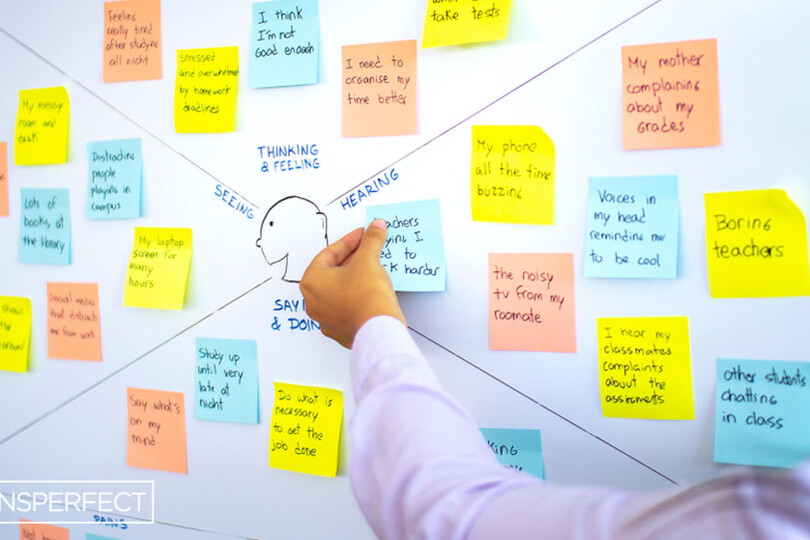Take our TMF Risk Score Survey today!
Tuesday, July 9, 2019 | 2:01 AM

End Scene! That’s a wrap on our second DIA global annual meeting workshop, “Setting the Stage for Stakeholder Collaboration.”
We appreciate each and every volunteer “actor” who stepped out of their comfort zone to help bring life to real collaboration scenarios in order to re-frame future conversations. If you didn’t make it to the workshop or didn’t hear about it, you can get a quick refresher from one of my previous blog posts. In short, my colleagues from the North Carolina Cary Playwrights’ Forum helped to produce original scripts of real-life study stakeholder collaboration situation, and workshop attendee volunteers then performed stage readings followed by exercises in empathy mapping and discussion. The goal was to provide an alternative way to explore collaboration challenges and provide real methods for understanding and navigating them. With year two under our belts, I’m proud to call it a success. As a professional facilitator, I can’t overstate the importance of the collaboration in action between the playwrights, volunteer actors, and attendees. Their engagement turns an idea into a real moment of reflection and learning for all.
Immediately following the session, one attendee remarked that a specific miscommunication referenced in one of the scenes happened to her (almost verbatim) last month. Another attendee stated something to the effect of “I never go to this type of session, but I really enjoyed it!” As an artist, I’ll allow myself to soak up some good reviews and I hope these kinds of comments inspire new attendees to try it out each year.
However, relating to the group of attendees and keeping everyone engaged is what we might consider the icing on the cake. The actual cake (you decide what kind it is – never mind, it’s ice cream cake) is comprised of the practical tools that can be used in real collaboration scenarios in the future. Several attendees commented that they could use the empathy map tool in their own stakeholder interactions, which really ties it all together. We come to these sessions as attendees to gain knowledge to help in our own careers and interactions, so it is wonderful to hear people exit stage right with a new way to analyze peer communication. Helping our audience evolve and evolving with our audience is something in which we take pride. You can learn about how we do this on the product side in a recent two-part series called “Evolving with Our Clinical Users”: Part I and Part II.
I learned some new things too. Last year, attendees taught me a few key things that we made sure to incorporate this year. Two ideas that were well received this year were:
- WIIFM (What’s in it for me?) - Attendees wanted more help visualizing how to use the tools discussed outside of the more controlled examples in the workshop.
- Demonstrate Both Sides of the Situation - Show an example of a “before and after” scene, showing the bad and good interaction with the same characters and situation.
This year brought its own set of lessons learned for the next session. We are looking forward to the course evaluation and feedback, but here are three key pieces of feedback we’ve received thus far:
- Gathering Scenarios from Past Attendees – It’s a collaboration workshop after all. We should involve as much collaboration as possible! We will be soliciting additional scenarios from past attendees, and writing some fun new scripts.
- Open up the Stage to More Actors – It’s a lot easier to get people to step out of their comfort zones when they are invested in the challenges and opportunities. More attendees want a shot at stage reading. To provide more opportunities for acting the part, next year we may have individual tables/groups perform stage readings within their groups.
- Bring on the Technology – We will incorporate digital interactivity into the feedback loop during the workshop scene analyses that may help attendees to be even more hands-on with the empathy mapping process, and walk away having retained more to readily apply to their work.
In talking with other #DIA2019 attendees, we have uncovered additional opportunities to bring these lessons to other groups, so stay tuned for other workshops near you this year and next. Speaking of next year, we are already planning out the #DIA2020 version, and are looking forward to bringing these and other design thinking tools to the clinical project management and strategy audience. Thank you for your support and participation. If you’re one of last year’s or this year’s writers or actors and happen to be reading this, take a bow!
If you want to learn more about study stakeholder collaboration, contact us at info@trialinteractive.com.





